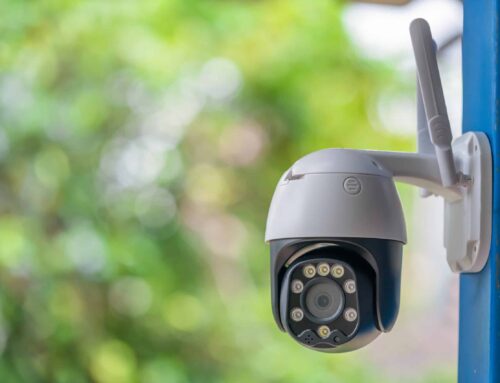Why Miami, Cutler Bay & Homestead Landlords Fail Without Renters Insurance

In the competitive rental markets of Miami, Cutler Bay, and Homestead, landlords face unique risks—from hurricane-related damages to liability issues, tenant negligence, unexpected accidents, and property losses. Yet many property owners in these popular South Florida areas still overlook one of the simplest and most cost-effective protections available: requiring renters insurance.
Failing to require renters insurance can expose landlords to unnecessary financial and legal complications. In high-risk, high-turnover, and high-demand areas like Miami-Dade County, it’s no longer optional—it’s an essential part of responsible property management.
Below, we break down why most landlords in Miami, Cutler Bay, and Homestead fall into costly traps when they don’t enforce a renters insurance requirement—and how implementing this one policy can drastically reduce headaches and improve profitability.
1. South Florida’s Risk Environment Amplifies Landlord Vulnerability
Hurricane and Storm-Related Damages
Landlords in Miami, Cutler Bay, and Homestead operate in one of the most hurricane-prone regions in the country. While landlords usually carry property insurance to cover the building, tenant belongings and tenant-caused damages are not included.
Without renters insurance, a landlord becomes the target for:
-
Claims from tenants demanding compensation for lost personal items
-
Disputes over temporary housing
-
Accusations when water, wind, or mold damage affects personal property
As a result, landlords often get dragged into conflicts that could have been avoided. Renters insurance shifts this burden by covering tenant belongings and personal-liability issues, protecting landlords from being pulled into unnecessary disputes.
2. Liability Claims Become a Landlord’s Problem Without Renters Insurance
Slip-and-Fall, Pet Bites & Guest Injuries
In busy areas such as Miami, Cutler Bay, and Homestead, rental homes see a steady flow of guests, service personnel, and pets. If a guest gets injured inside a unit, the landlord may be pulled into an expensive claim, even when they did nothing wrong.
Renters insurance includes:
-
Personal liability coverage
-
Medical payments coverage
-
Pet liability coverage (in most policies)
Therefore, when landlords don’t require renters insurance, they become the default target, which increases legal exposure and financial risk.
3. Tenant Negligence Can Lead to Expensive Losses
Kitchen Fires, Water Damage, Mold & Accidental Destruction
Tenant negligence is one of the leading causes of landlord losses—especially in older Miami properties.
Common incidents include:
-
Kitchen fires
-
Overflowing bathtubs
-
Plumbing damage
-
Mold from poor ventilation
-
Pet destruction
Moreover, in cities like Miami where many homes and condos are aging, small accidents often turn into large repair bills. Renters insurance ensures that the tenant’s liability coverage pays for these damages, instead of the landlord being stuck with the expense.
4. High Tenant Turnover Increases Landlord Exposure
South Florida’s rental environment is extremely dynamic. Seasonal moves, job changes, and affordability issues create turnover rates higher than in many U.S. cities.
As a result, landlords face:
-
Frequent move-in/move-out inspections
-
More opportunities for disputes
-
Higher wear-and-tear
-
Increased risk of abandoned belongings
Additionally, renters insurance promotes tenant accountability, which significantly reduces move-out conflicts and protects the landlord’s bottom line.
5. Landlords Pay Out-of-Pocket Without a Renters Insurance Requirement
Many landlords falsely assume their property insurance covers everything. However, property insurance only covers the building structure, not tenant-caused issues or personal items.
Property insurance does not cover:
❌ Tenant personal property
❌ Tenant-caused liabilities
❌ Additional living expenses for tenants
❌ Personal belonging disputes
Therefore, without renters insurance, landlords end up paying for:
-
Hotel stays for displaced tenants
-
Repairs caused by negligence
-
Cleaning and remediation
-
Legal fees from disputes
Considering renters insurance costs only $12–$25 per month, it is one of the most cost-effective protection strategies a landlord can require.
6. Renters Insurance Helps Attract Higher-Quality Tenants
Experienced landlords in Miami, Cutler Bay, and Homestead consistently report that tenants who carry renters insurance tend to be:
-
More responsible
-
More financially stable
-
More careful with the property
-
More reliable communicators
Because of this, adding a renters insurance requirement helps filter out high-risk applicants early, improving tenant quality overall.
7. Renters Insurance Reduces Conflict, Claims & Legal Disputes
Many landlord-tenant disputes revolve around:
-
Property damage
-
Repair responsibility
-
Lost personal items
-
Mold or water damage
-
Injuries
However, when renters insurance is in place, these conflicts decrease dramatically. Renters insurance ensures:
-
The tenant’s policy covers tenant-caused damage
-
The landlord’s policy covers structural issues
-
Disagreements stay minimal since coverage is predefined
Consequently, landlords see fewer disputes and smoother operations.
Conclusion: Renters Insurance Is a Must for Every Miami-Dade Landlord
Whether you manage a duplex, single-family home, condo, or multi-unit rental, requiring renters insurance is one of the smartest decisions you can make. It reduces financial exposure, minimizes legal risks, protects your property, and encourages responsible tenancy.
In high-risk areas like Miami, Cutler Bay, and Homestead, landlords who skip this requirement face:
-
Higher repair costs
-
More disputes
-
Increased liability claims
-
Lower tenant quality
By enforcing a simple renters insurance requirement, Miami-Dade landlords can safeguard their investments and operate with far greater peace of mind.




